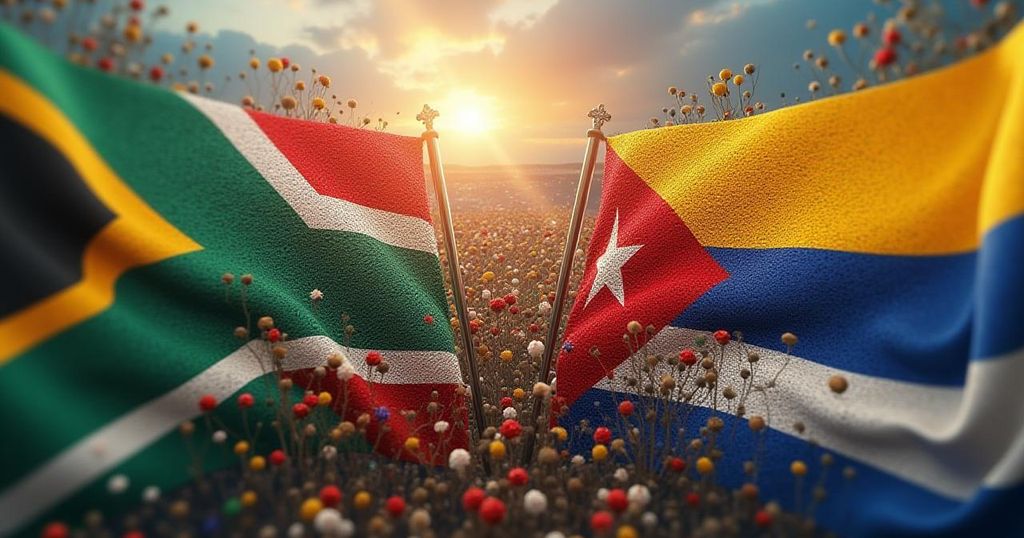Namibia and South Africa Reaffirm Support for Cuba and Venezuela Amidst Sanctions
Namibia and South Africa expressed their support for Cuba and Venezuela during a ministerial meeting held in Swakopmund on October 14-15, condemning the US blockade against Cuba and illegal sanctions on Zimbabwe. They also addressed Israel’s actions in Lebanon and discussed the situation in Western Sahara, welcoming a recent court ruling on the self-determination of the Sahrawi people.
In a significant diplomatic gathering, the Foreign Ministers of Namibia and South Africa convened in Swakopmund on October 14 and 15 to express solidarity with Cuba and Venezuela amidst their ongoing economic challenges exacerbated by unilateral sanctions. Namibian Foreign Minister Peya Mushelenga and South African counterpart Ronald Ozzy Lamola articulated their nations’ firm opposition against the longstanding economic, financial, and commercial blockade imposed on Cuba by the United States, advocating for an immediate cessation of this policy which has persisted for over sixty years. The dialogue further extended to regional concerns, where both ministers condemned Israel’s military actions in Lebanon, labeling them as grave violations of international law and sovereignty. They urged the broader international community alongside the United Nations Security Council to adhere strictly to international legal standards in their response to such situations. The ministers also voiced their strong disapproval of the illegal sanctions imposed on Zimbabwe, recognizing their detrimental impact on both the socioeconomic development of Zimbabwe and the overall stability of the Southern African region. Furthermore, the meeting included discussions on the situation in Western Sahara, with an expression of approval regarding the European Court of Justice’s ruling on October 4, 2024, which highlighted the violation of the Sahrawi people’s right to self-determination by the European Commission.
The geopolitical landscape of southern Africa reflects a complex web of alliances and diplomatic relations, particularly in relation to countries that have historically faced sanctions or isolation, such as Cuba and Venezuela. The long-standing economic blockade against Cuba by the United States has garnered opposition from various global partners, particularly within the African continent, where solidarity gestures are often presented in international forums. Similarly, the socioeconomic situation in Zimbabwe has raised alarms regarding the efficacy and morality of sanctions, prompting calls for their revocation from neighboring states. The recent ruling by the European Court of Justice regarding Western Sahara further underscores the importance of self-determination in international law and geopolitics.
The ministerial meeting in Swakopmund served as an important platform for Namibia and South Africa to demonstrate their diplomatic stance on pressing global issues, particularly regarding the support of Cuba and Venezuela against sanctions. By condemning illegal sanctions on Zimbabwe and addressing violations of international law in the region, both nations reinforced their commitment to fostering solidarity and ensuring adherence to international humanitarian principles. This gathering underscores the interconnectedness of international relations within the southern African region and the ongoing fight for self-determination and justice globally.
Original Source: www.plenglish.com




Post Comment